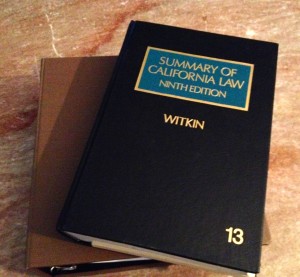What is “Proper Attorney Diligence”?
The rules which govern attorney conduct state that a lawyer cannot accept or represent a client unless the attorney can dedicate a professionally-adequate amount of time and resources to handling and managing the client’s case or issue.
This is a duty the lawyer owes to the client, and also to the justice system generally. Lawyers should not represent any client unless they can pursue the client’s interests and issues with reasonable professional diligence.
WHAT IS THE EXPECTED LEVEL OF ATTORNEY DILIGENCE?
An attorney shows proper diligence by exercising reasonable “best efforts” to handle the client’s matter with professionally reasonable speed. This doesn’t mean the lawyer has to dedicate all of his or her time and effort to the client’s matters — in fact, that’s often an unreasonable expectation. However, the lawyer does need to pursue the client’s matters and interests in a reasonable amount of time and in a professional manner. This might include:
1. Appropriate Levels of Professional Skill and Experience. An attorney should be familiar with the area(s) of law which govern the client’s case or issues. Although the attorney need not necessarily have addressed these issues in the past (competence can be achieved through a variety of means and methods), an attorney must be competent to handle the client’s issues. Failure to diligently pursue and maintain a competent level of familiarity with the relevant laws and issues is inappropriate.
2. Proper use of available technologies. Attorneys are not required to use computer-aided research programs (such as Westlaw) or electronic research–printed practice guides and case law reporters are also acceptable if properly used. However, a lawyer does need to have access too, and utilize, sufficient legal resources to keep abreast of relevant changes and developments in the law, and to forms and procedures necessary to handle the client’s case or issue(s).
3. Utilization of Appropriate Resources. Diligence requires professional skill, but sometimes it also requires use of additional resources too. In some areas, bankruptcy attorneys may need to own (or obtain access to) specialized software used by the bankruptcy courts. (Specialized software is often used in marital dissolutions and other family law matters also.) Where special software, forms, or other resources are required (or strongly advisable) to handle a client’s matter in accordance with accepted practices, customs, and standards in the area, the attorney should be aware of–and utilize–these special resources in addition to his or her standard professional skill.
WHAT HAPPENS WHEN AN ATTORNEY CANNOT COMPLY WITH DILIGENCE REQUIREMENTS?
Attorneys who know (or strongly suspect) they cannot fulful the obligation of diligence to a client should decline representation from the outset.
Attorneys who believe they can pursue a matter diligently, but later discover that diligence will not be possible should withdraw from representation as soon as the lawyer becomes aware that a problem will (or is likely to) occur.
***
If you believe that your attorney failed to show proper diligence in prosecution or handling of your legal issues, do not delay: consult with an experienced malpractice lawyer immediately, to prevent loss of your legal rights.
Do not rely on this, or any other article or informational piece to evaluate your legal rights. This article is intended for informational purposes only, and is not a substitute for a personalized consultation and opinion from experienced legal counsel.















